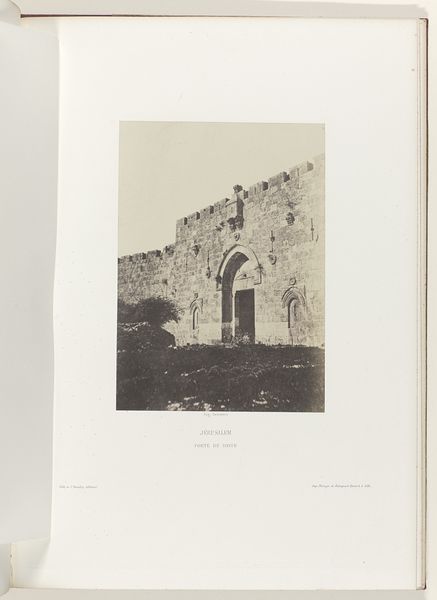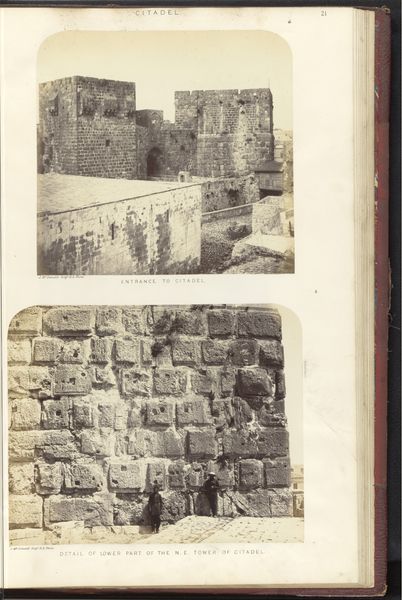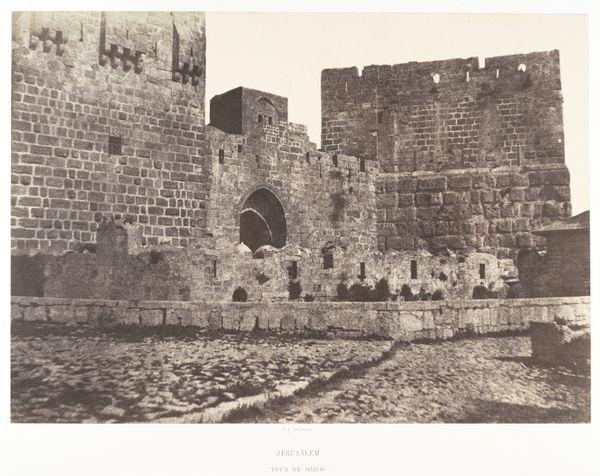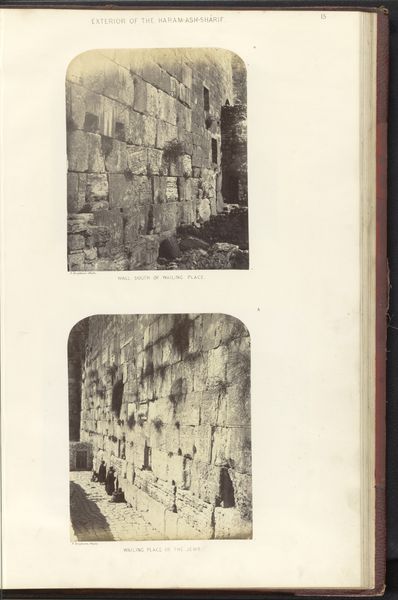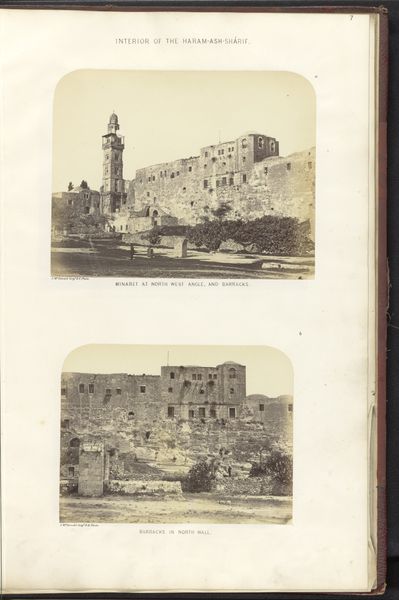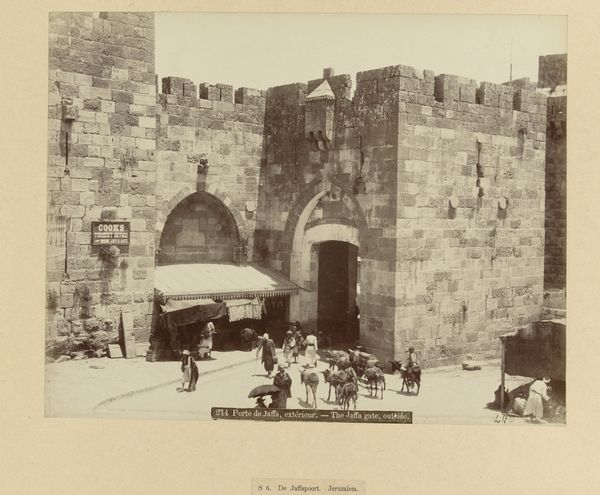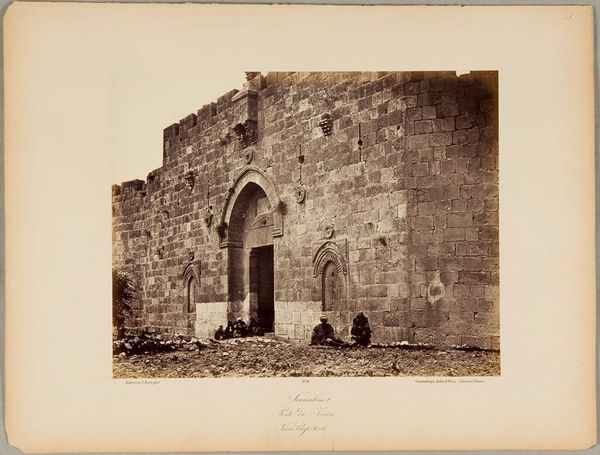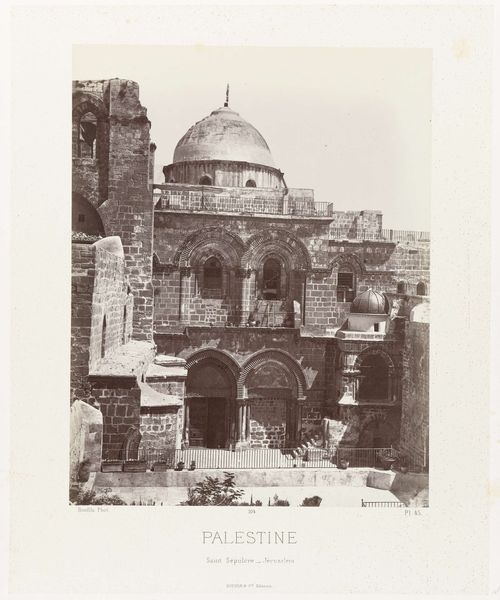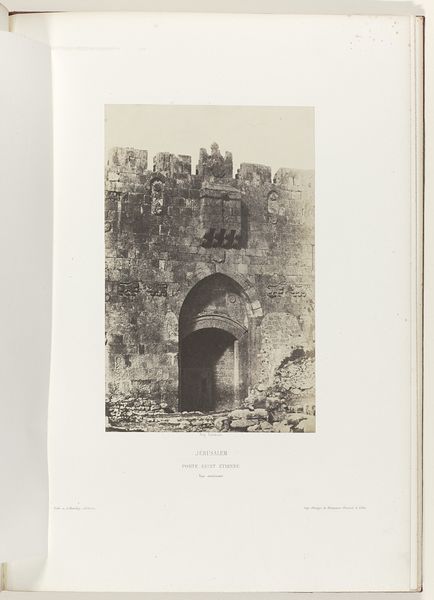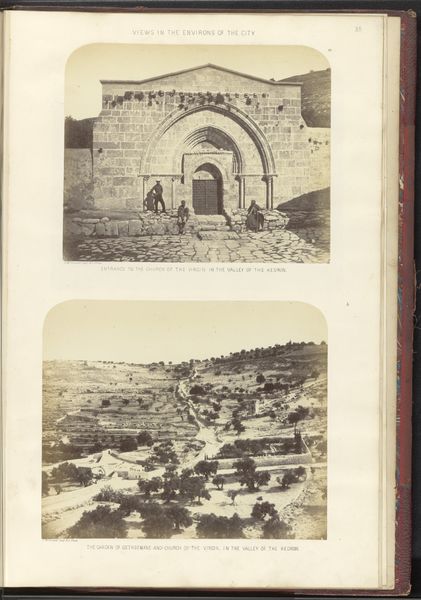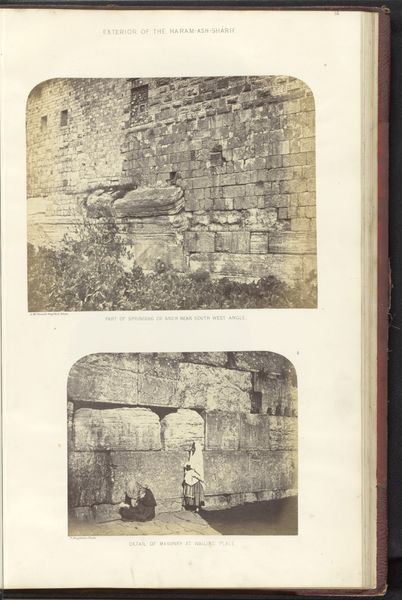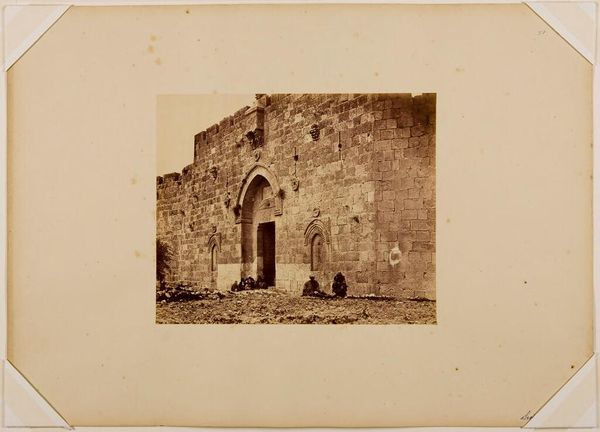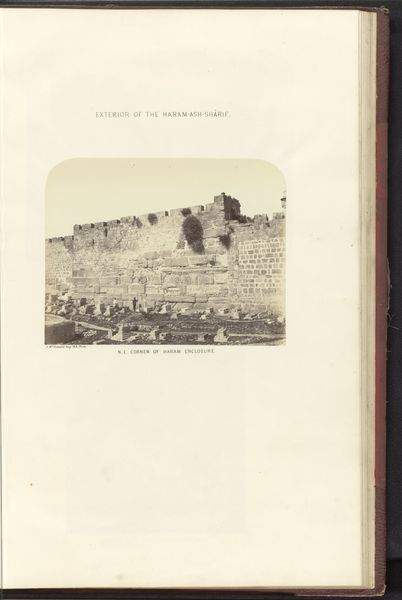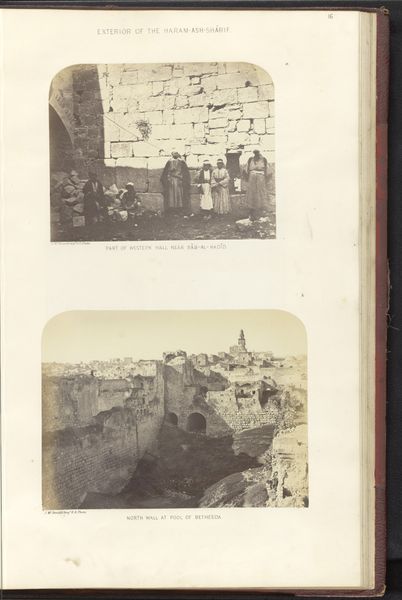
photography, gelatin-silver-print
#
landscape
#
photography
#
coloured pencil
#
ancient-mediterranean
#
pen-ink sketch
#
orientalism
#
gelatin-silver-print
#
cityscape
#
watercolour illustration
Dimensions: height 523 mm, width 340 mm
Copyright: Rijks Museum: Open Domain
Editor: Here we have an early gelatin silver print titled "Gezicht op de Zionpoort in Jeruzalem," placing it before 1865. The Zion Gate looks so imposing. What strikes me most is its powerful stillness and the detail captured of the stone itself. How do you interpret this work within its historical context? Curator: Well, consider this image not just as a record of a place, but as a cultural artifact itself. During this period, photography was transforming perceptions of the ‘Orient.’ Images like this one, often created by Western photographers, reinforced particular ideas about the Middle East as ancient, biblical, and in some ways, ‘unchanging.’ Editor: So, it's not just a simple snapshot? Curator: Precisely. The framing, the angle, and even the choice to focus on the gate itself – these decisions position the viewer in a specific relationship to the depicted scene. We need to ask, what purpose does this image serve? Is it to document, to exoticize, or perhaps something in between? Think about who would have been buying and viewing these photographs back then. What stories were they consuming alongside these images? Editor: It's fascinating to consider the power dynamics at play. I hadn’t considered how much the photograph's purpose might be shaped by the socio-political forces of the time. Curator: Exactly. By looking at how this image circulated and was understood, we can gain a deeper understanding not only of the place itself, but of the Western gaze during the 19th century. Editor: Thank you! I now appreciate how understanding historical context is essential for critically looking at art.
Comments
No comments
Be the first to comment and join the conversation on the ultimate creative platform.
